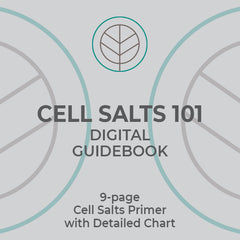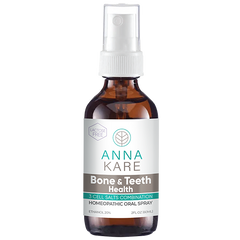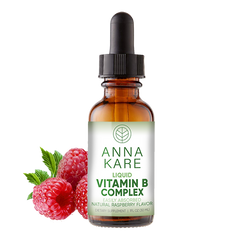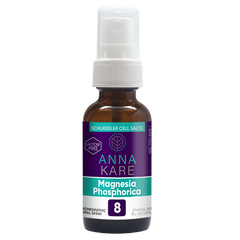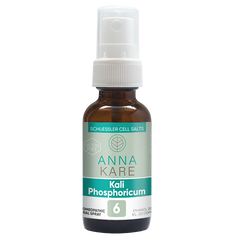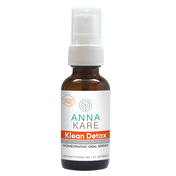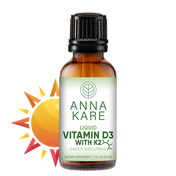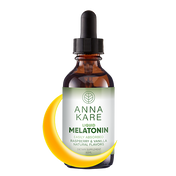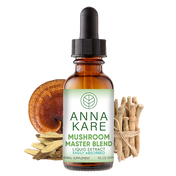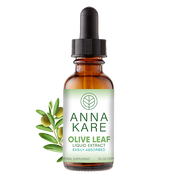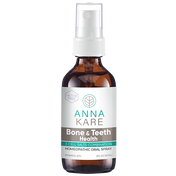The importance of minerals to our health can hardly be overemphasized. They make up about five percent of our body and are involved in every single process carried out by our cells and organs.
Did you know that your cells renew themselves incessantly and frequently? It’s true. Depending on where they are in your body, they can renew every couple of days (stomach cells) or every four months (red blood cells).
Your skin cells are swapped out for new ones every two to three weeks, yet your brain cells stay the same throughout your entire existence. Your whole skeleton will have completely regenerated itself in ten years, but your eye lenses don’t, hence many people need glasses.
Should we be concerned about the most common mineral deficiencies in our diet?
Yes. First, without minerals, we would simply cease to exist. Second, knowing that we can renew our skin every couple of weeks might give us some hope.
If you’ve ever been on the side of not eating as well as you should, changing your diet to incorporate mineral-loaded healthy food and knowing how to best absorb them will allow you to transform your body on the cellular level and help you lead a better and longer life.
In this blog, we will answer your questions about what minerals are, what they do for your body, the most common mineral deficiencies, and how Schuessler tissue salts can help you increase your mineral intake.
|
Cell Salts Kit |
What Are Minerals?
Approximately 95% of our bodies are made up of organic elements – oxygen, carbon, hydrogen, and nitrogen. The rest, about five percent are made up of seven macrominerals and at least ten microminerals or trace minerals.
Not only do these minerals control different parts of your body, but they are largely responsible for how you feel every day. So, if you are constantly deficient in iron, as many women are, you may experience regular headaches and fatigue.
Macrominerals are as follows, calcium, chlorine, magnesium, phosphorus, potassium, sodium, and sulfur. Trace minerals are also essential minerals, but the quantity our body needs is less.
The trace minerals include cobalt, copper, fluoride, iodine, iron, manganese, molybdenum, selenium, silicon, and zinc.
The Importance of Minerals
The absence of minerals affects all parts of the body from the strength of our bones to our blood health to the electrical impulses generated and transmitted by the nerves. Each of these minerals can be divided up into categories related to their main body functions.
Did you know that poor nutrition was originally identified as a disease in the United States approximately 100 years ago? It was even given a name, pellagra. It was discovered that those who suffered from pellagra were eating a restricted diet that included practically no fruits or vegetables.
Minerals are a vital part of our bodies, but they are completely dependent on the food we eat and on our body’s ability to absorb them.
What are Schuessler Tissue Salts?
Schuessler tissue salts, also called Schuessler cell salts, were discovered – as the name implies – by Dr. Schuessler, a German physician and homeopath, in 1874. Schuessler was a contemporary of Rudolf Virchow, the father of cell pathology, and Jacob Moleschott, a Dutch physician who studied the importance of minerals to a healthy body and mind.
Dr. Schuessler identified 12 essential minerals (all macrominerals and some microminerals) present in every cell of our body. Read more about each cell or tissue salt in our blog, Schuessler Cell Salts – Natural Remedies for Everyday Wellness.
What differentiates Schuessler cell salts from other mineral supplements is that they are mineral compounds as they appear in the body, i.e. Calcium Phosphate and Iron Phosphate.
They are prepared in small doses, are very easily absorbed, act on the cellular level, and do not cause side effects like constipation or diarrhea.
|
Intro eBook to the 12 Schuessler Tissue Salts |
Similar to homeopathic remedies, rather than trying to substitute, cell salts complement and prompt the body to better assimilate minerals supplied by our food and to deploy the already present minerals more efficiently throughout the body.
The 3 Most Common Mineral Deficiencies
The top three mineral deficiencies in the 21st century’s digital and industrial age are calcium, iron, and magnesium. Here’s a breakdown of what each of the three macrominerals is responsible for, what a deficiency in the mineral means, and how you can best fuel up on these essential minerals with nutrient-dense foods, Schuessler tissue salts, and a few vitamins, too.
Calcium Deficiency
Calcium is especially needed for strong, healthy bones, bone structure, and teeth. A calcium deficiency will result in a loss of bone mass, which as we age can lead to osteoporosis. In children, it can lead to impaired growth.
Additionally, Calcium helps facilitate muscle contraction, blood coagulation, hormone discharge, and nerve impulses.
Calcium deficiency is one of the most common mineral deficiencies, particularly in women, those who suffer from lactose intolerance and avoid drinking milk or eating dairy products, or those who avoid milk for dietary reasons and are on a plant-based diet.
Luckily, bones have the ability to renew themselves, thanks to calcium, phosphorus, silica, and also Vitamin D.
Schuessler cell salts Calc Fluor #1, Calc Phos #2, and Silica #12 represent a popular trio of bone and teeth-supporting cell salts recommended by holistic health practitioners. They are available in a 3-in-1 cell salts combination called Bone & Teeth Health Cell Salts.
The Bone & Teeth Health Cell Salts combination comes in the form of an oral spray without sugar, lactose, or gluten. It is recommended three to four times a day for two to three months every year and on a regular basis over the age of 45 to help maintain strong bones, healthy teeth, and contribute to the health of skin, hair, nails, and eyes.
|
Bone & Teeth Health Cell Salts |
The Role of Vitamin D
Vitamin D helps the body absorb calcium and phosphate. Vitamin D is crucial for bone health and for the immune system. While vitamin D isn’t a mineral, the role it plays is extremely important, and vitamin D deficiency is one of the most common nutrient deficiencies.
The quickest way to get your daily dose of vitamin D is through the magic of the sun. Our bodies absorb sunshine and can synthesize the vitamin. However, unless you live by the equator, chances are, you are vitamin D deficient. Plus, too much sun exposure can be damaging to the skin.
This is why vitamin D is the #1 vitamin recommended by doctors for supplementation and why we offer our Bone & Teeth Health Cell Salts + Liquid Vitamin D3 Bundle.
Only 5 drops are needed for 2,000 IU of this well-tasting, quickly absorbing vitamin D3 which offers a 6-month supply.
|
Liquid Vitamin D3 |
Bone & Teeth Health Cell Salts + Liquid Vitamin D3 Bundle |

Iron Deficiency
Iron is needed to form both myoglobin and hemoglobin. Myoglobin carries oxygen to build muscles. Hemoglobin carries oxygen to red blood cells. There are two types of dietary iron, heme iron and non-heme iron.
Heme iron is only found in animal products, whereas non-heme iron is found in both plant and animal foods. Non-heme iron is not as easily absorbed as heme iron. Iron deficiency affects around 1.2 billion people worldwide, although women are more likely to suffer.
Because iron deficiency is one of the most common mineral deficiencies in the world, you may already recognize the scientific name it's given, anemia. Anemia is when the number of red blood cells drops. Red blood cells are what carry oxygen to other parts of your body.
An iron deficiency can include cold hands and feet, excessive tiredness, brain fog, dizziness, and shortness of breath.
The top reasons for iron deficiencies include blood loss through menstruation, not enough iron in the diet, having an ailment like celiac disease, pregnancy, those who follow a vegetarian or vegan diet, and improper iron absorption.
Schuessler cell salt Ferr Phos #4 is known as the homeopathic iron; it helps carry oxygen to all parts of the body. Those who have an iron deficiency and are prone to anemia can benefit from adding tissue salt Ferr Phos to their wellness regime without side effects of regular iron supplements.
Consider combining cell salts Ferr Phos and Calc Phos #2 as the two are often recommended together for even faster iron absorption.
Because Ferr Phos transports oxygen to the cells, it is frequently taken with other cell salts to speed up the healing process. It is an indispensable cell salt good for immunity, after workouts, to help recover from injuries, and taken at the onset of a fever or cold.
|
Cell Salt Ferr Phos |
Cell Salt Calc Phos |
The Role of Folate and Vitamin B12
Folate, also known as vitamin B9 or folic acid, works to metabolize amino acids and helps create our DNA and red blood cells. Vitamin B12 is needed to use folate properly, helps break down amino acids and fat, and lastly, aids in maintaining nerve tissue.
Without the proper amount of both B vitamins, red blood cells cannot develop normally, and anemia, fatigue, and headaches can occur.
The B vitamins are water-soluble vitamins which means that they are dissolved in the water in our body, easily lost, and need constant replenishing. People with digestive disorders, older adults, and people who prefer plant-based food may not consume or absorb enough B vitamins, particularly Vitamin B12, which is why Vitamin B12 deficiency is one of the most common nutrient deficiencies.
Opting for a quality Vitamin B supplement is a healthy choice. AnnaKare Liquid Vitamin B Complex includes all essential B vitamins including 1000 mcg of B12 and 667 mcg of folate.
Formulated by our nutraceutical expert and herbalist with over 30 years of experience, it is clean and easily absorbable and offers maximum potency and stability.
|
Liquid Vitamin B Complex |

Magnesium Deficiency
Magnesium is needed for muscle contraction, blood coagulation, and bone and tooth structure. It also helps the body make proteins.
Magnesium has been shown in studies as a treatment for acute and chronic pain, tension headaches, and frequent migraines. It works to block the NMDA receptors or pain pathways.
Those who suffer from severe cramps associated with menstruation, leg cramps, diabetic neuropathy – where the individual deals with numbness, hypersensitivity to pain, and/or a tingling sensation, and other conditions where nerve pain is present, may benefit from getting their magnesium levels checked.
They are not alone because magnesium deficiency is one of the top common mineral deficiencies. The leading cause is a decline in key nutrients such as magnesium in our soil and food.
Cell salt Mag Phos # 8 is often considered the most important cell salt of our time. We call it the “homeopathic aspirin” due to its excellent pain-relieving qualities and like to administer it with warm water for acute and severe pain to take effect even faster.
For neuralgic pain, try cell salt Mag Phos together with cell salt Kali Phos #6, the leading stress cell salt. Both tissue salts offer comforting support on the cellular level for burning, stabbing, or shooting sensation and pain.
|
Cell Salt Mag Phos |
Cell Salt Kali Phos |

The Role of Vitamin C in Mineral Absorption
Vitamin C is praised for its many health benefits, particularly its role in immune health and collagen production. But did you know that Vitamin C is also known for helping absorb magnesium, iron, and calcium?
In fact, it is the only supplement known to help with iron absorption, is recommended with iron-rich food, and assists in improving non-heme iron assimilation found in plant foods.
An extreme vitamin C deficiency led to the development of scurvy up till the year 1928 when vitamin C was identified, particularly among sailors who didn’t have access to fruits and vegetables on long trips at sea. They developed bleeding gums and even bone pain.
Today, those with a vitamin C deficiency will find themselves more susceptible to the three most common mineral deficiencies – calcium, iron, and magnesium. Low vitamin C levels can also jeopardize your eye health and slow the healing of wounds.
The absolute minimum amount of vitamin C an individual will want to have in their system is 75 mg per day. Do not exceed more than 2000 mg per day. AnnaKare Liquid Vitamin C offers a generous portion of 500 mg of Vitamin C in every teaspoon and can be added to water or even your favorite juice or smoothie.
|
Liquid Vitamin C |

Final Thoughts
Well-balanced mineral levels have a big impact on our bodies and health. Expecting that you’ll always be able to eat perfectly is putting an unrealistic expectation on your eating habits. But lots of mineral supplements cause more harm than good or at best can't be absorbed by the body, passing through it without taking effect.
Schuessler cell salts are different. Used and proven successful for over 150 years, tissue salts can help your body become more efficient at absorbing minerals and other nutrients and holding on to them longer without unwanted side effects.
Use the cell salts above to help avoid the top 3 mineral deficiencies. Combine them with the 3 most essential vitamins – vitamin C, D, and the B vitamin group – and a varied diet including meals from all different food groups that will make your plate as colorful as possible.
In today’s world, we are using our bodies in ways beyond their original conception. But with the support from carefully crafted homeopathic tissue salts and quality liquid vitamins, you can still meet your nutritional needs despite your busy schedule.
References and Sources:
The Body Book by Cameron Diaz with Sandra Bark
Macrominerals and Trace Minerals in the Diet by Dr. Catherine Shaffer, Ph. D. Reviewed by Dr. Liji Thomas, MD
Please note: Content and product descriptions are grounded in natural wellness practices. This information has not been evaluated by the Food and Drug Administration. Talk to your doctor before taking dietary supplements during pregnancy, breastfeeding, and with certain medical conditions.




